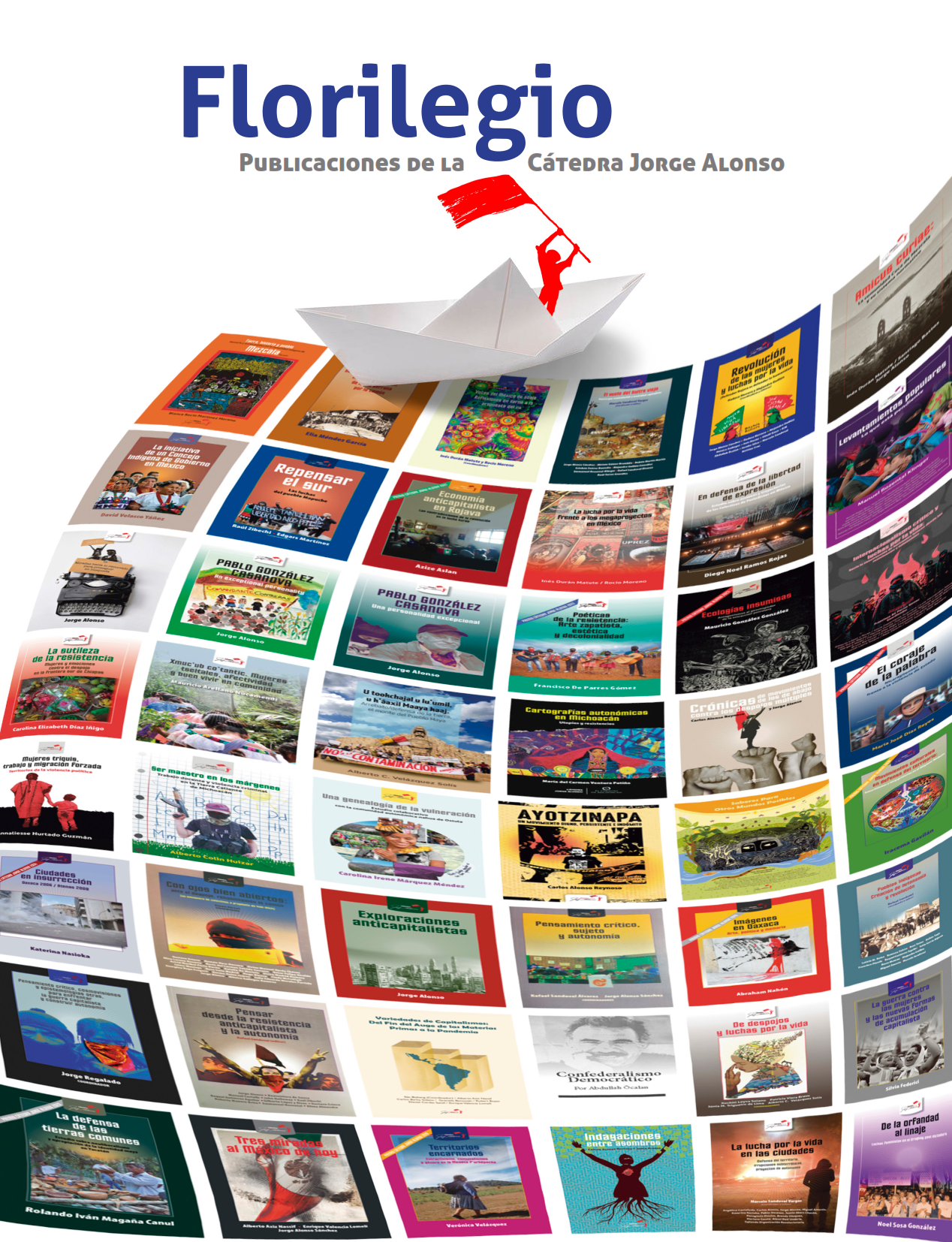Placing names conversion into verbs as a mean of explaning their outstanding properties
Resumen
ABSTRACT
Verbs formed from toponyms by zero conversion are the focus of this article. The paper intends to show that converting a place name into a verb is a prominent way of explicating the place's salient properties. The data were collected from the corpora and detected on news, media sites and blogs. The study shows that verbs formed from place names demonstrate how people conceptualize places. Research shows that the linguistic salience is preceded by the conceptual salience that occurs when some striking event, fact, point of view about the place becomes strongly associated with it and regularly talked about.
RESUMEN
Los verbos formados a partir de topónimos por conversión cero son el foco de este artículo. El artículo pretende mostrar que convertir un nombre de lugar en un verbo es una forma destacada de explicar las propiedades más destacadas del lugar. Los datos fueron recolectados de los corpus y detectados en sitios de noticias, medios y blogs. El estudio muestra que los verbos formados a partir de nombres de lugares demuestran cómo las personas conceptualizan los lugares y la relevancia lingüística está precedida por la importancia conceptual que ocurre cuando algún evento llamativo, el hecho sobre el lugar se asocia fuertemente con él.
Citas
ANNÍA G, María Eugenia., VILLALOBOS ANTÚNEZ, José Vicente., ROMERO PABÓN, Julio Cesar., RAMÍREZ MOLINA, Reynier Israel., & RAMOS MARTÍNEZ, Yanelis. (2018). “Conciencia ética en organizaciones universitarias: un estudio fenomenológico de la praxis como continua formación”. In Revista Inclusiones, 5(4), pp. 179-195.
ERICKSON, T (1993). “From interface to interplace: The spatial environment as a medium for interaction”. In European Conference on Spatial Information Theory, pp. 391-405. Springer, Berlin, Heidelberg.
HAMBURGER, K, TRILLMICH, CM, BAIER, F, WOLF, C, & ROESER, F (2014). “How global visual landmarks influence the recognition of a city”. Cognitive processing, 15(1), pp. 42-44.
HERNÁNDEZ, P., VILLALOBOS, J., MORALES, M., & MORENO, J. (2016). “Racionalismo emergente en la gerencia universitaria: factor de humanización en universidades de Colombia, Venezuela y México”. In Revista Espacios. Vol. 37, No.30: 1.
KALOGEROPOULOS, P, RUSSO, JA, SULLIVAN, P, KLOOGER, M, & GUNNINGHAM, S (2020). “Re-enfranchising Mathematically-alienated Students: Teacher and Tutor Perceptions of the Getting Ready in Numeracy (G.R.I.N.) Program”. International Electronic Journal of Mathematics Education, 15(1).
LANGACKER, RW (2002). Concept, image, and symbol: The cognitive basis of grammar (Vol. 1). Walter de Gruyter.
LAUREANO, RMS, FERNANDES, AL, HASSAMO, S, & ALTURAS, B (2018). “Facebook Satisfaction and Its Impacts on Fundraising”: A Case Study at a Portuguese Non-Profit Organization. Journal of Information Systems Engineering & Management, 3(1), pp. 4-7.
MARTÍNEZ, Suyis; RAMOS MARTÍNEZ, Yanelis & ANNÍA, María Eugenia. (2019). “El coaching en educación. Utilidad para la transformación escolar mediante sistematización de experiencias”. In Opción. Revista de Ciencias Humanas y Sociales. Año 35, No. 89-2: 1388-1439. Universidad del Zulia. Maracaibo (Venezuela).
MIEDER, W (2015). “The Grass Is Always Greener on the Other Side of the Fence”. In Wise Words (RLE Folklore), pp. 541-568. Routledge.
MOHAMMADI, S, & YEKTA, P, (2018). “The Effect of Emotional Intelligence on Job Satisfaction among Stuff Nurses in Intensive Care Units”. UCT Journal of Social Sciences and Humanities Research, 6(2), pp. 1-7.
NOORADI, M, BAGHERI NIA, H, & OULIAEY, A (2017). “Are the manager's bases of power related to job satisfaction?” UCT Journal of Management and Accounting Studies, 5(3), pp. 71-75.
NOVA, N (2005). “A review of how space affords socio-cognitive processes during collaboration”. PsychNology, 3(ARTICLE), pp. 118-148.
“Online Etymology Dictionary”. Retrieved from http://www.etymonline.com/index.php?term=Shanghai&allowed_in_frame=0.
PAKDEL, M, & ASHRAFI, M (2019). “Relationship between Working Capital Management and the Performance of Firm in Different Business Cycles”. Dutch Journal of Finance and Management, 3(1).
PAUMGARTEN, N (2016). Patagonia’s philosopher-king. The New Yorker.
PECKHAM, A (2009). Urban dictionary: Fularious street slang defined (Vol. 1). Andrews McMeel Publishing.
PINKER, S (2003). The language instinct: How the mind creates language. Penguin UK.
RAMOS MARTÍNEZ, Yanelis. (2007). Estrategias de la gestión directiva y construcción de la grandeza docente en las escuelas bolivarianas. In Revista electrónica de humanidades, educación y comunicación social, (REDHECS). Edición 2, año 2.
RÖSER, F, KRUMNACK, A, HAMBURGER, K, & KNAUFF, M (2012). “A four-factor model of landmark salience–A new approach”. In Proceedings of the 11th International Conference on Cognitive Modeling (ICCM), pp. 82-87. Berlin: Technische Universität Berlin.
TOMKO, M, & WINTER, S (2009). “Pragmatic construction of destination descriptions for urban environments”. Spatial Cognition & Computation, 9(1), pp. 1-29.
URDANETA, Esther & VILLALOBOS, José Vicente. (2016). Bioética como marco de la responsabilidad social en hospitales públicos. In Opción. Revista de Ciencias Humanas y Sociales. Año 32, Especial No.12: 830-856.
VILLALOBOS, J., GUERRERO, J., & ROMERO, L. (2019). “Hermenéutica de la política y legitimidad de su ejercicio: democracia y Estado de derecho”. In Utopía y Praxis Latinoamericana. Año: 24, No. 86: 182-197, Universidad del Zulia. Maracaibo Venezuela.
VILLALOBOS ANTÚNEZ, José Vicente & GANGA CONTRERAS, Francisco. 2018. “Tecnoempresa y Tecnocimiento: Una Perspectiva desde la Bioética Empresarial”. In Revista Fronteiras: Journal of Social, Technological and Environmental Science. Vol. 7, No. 3: 214-230. Unievangélica Centro Universitario, (Brasil).
VILLALLOBOS ANTÚNEZ, José Vicente & GANGA, Francisco. (2016). “Bioética, dignidad e intertemporalidad de los Bioderechos Humanos”. In Revista de Filosofía. Vol. 83, Nº. 2: 7-24.
VILLALLOBOS ANTÚNEZ, José Vicente & GANGA, Francisco. (2016). “Derechos sociales fundamentales: Consideraciones iusfilosóficas de sus dilemas. Aproximación utópica desde la Bioética Global”. In Utopía y Praxis Latinoamericana. Año 21, N° 75: 93-111.
WINTER, SW, BENNETT, RMB, TRUELOVE, M, RAJABIFARD, AR, DUCKHAM, MD, KEALY, AK, & LEACH, JHL (2010). Spatially enabling'place' information.









